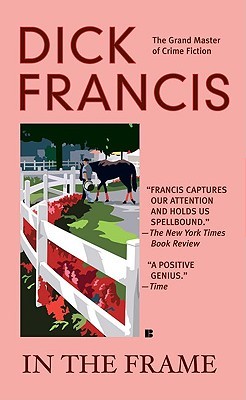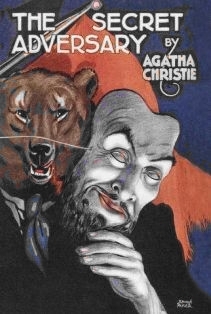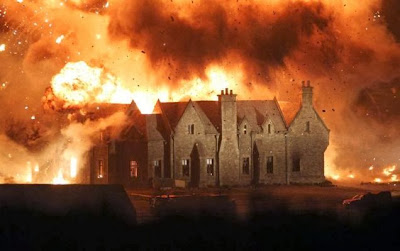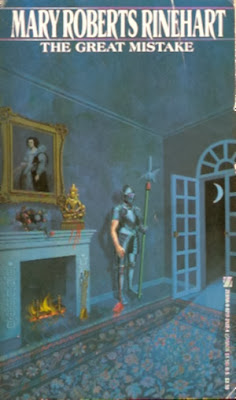
Favorite GIF of the year.
Guys, did you realize it's December already?? I kid, I knew it was coming all along. And since the year is ending, one feels the need, forced upon one by the Gregorian calendar and popular culture, to reflect on all happenings since January. This will probably come as a shocker, but I read a few books. Here are the stand-outs, with links in case you missed 'em:
Favorite New-to-Me-Author: Craig Johnson
Johnson writes the Walt Longmire series, which has been turned into a TV series on A&E (Longmire). The TV show is okay, but the books are so much better. Hell is Empty is one of the best books I read all year.
Best Spy/Thriller: The English Girl by Daniel Silva
A surprisingly emotional, thoughtful book for a spy novel. Daniel Silva is also an awesome writer. This is another author whose entire backlist I want to read IMMEDIATELY.

Best Forgotten Classic: Vera by Elizabeth von Arnim
This book is like a very dark, cynical Rebecca; yet it's also weirdly funny because von Arnim is so freaking clever. I would recommend it to anyone who thinks Edward Cullen is a stalker.

Favorite Not-Forgotten Classic: Animal Farm by George Orwell
Kind of the perfect novel, in my opinion.

Favorite Book Actually Published in 2013: The Bridge by Rebecca Rogers Maher
I pretty much love everything about this novella—the characters, the premise, the setting, how the romance developed, the tone, and the ending. A very hopeful, uplifting, romantic book.
Only Book That Kept Me Up Past My Bedtime: The River of No Return by Bee Ridgway
It's a real challenge for me to find a book that will keep me up wanting to read one more chapter, one more chapter, no matter how tired I am. The River of No Return did that, and I loved it. This one also has great characters and the chemistry between Julia and Nick was page-scorching.
Favorite Art-Related Non-Fiction Book: The Brinkley Girls by Nell Brinkley
I have a bias for beautiful, huge books that are heavily illustrated (it's the art historian in me), and The Brinkley Girls is definitely that. Nell Brinkley was an iconic illustrator of the late 1910s and -20s, whose drawings influenced the fashion of an entire generation of women. Her comics weren't just pretty to look at, though—they also had surprisingly feminist storylines. The Brinkley Girls contains all of Nell Brinkley's full-page color comics, and a little info on the artist herself.

Best Art-Related Novel: In the Frame by Dick Francis
I do love Francis' painter heroes, and Charles Todd is no exception.

Best Mystery: The Secret Adversary by Agatha Christie
Agatha Christie is so tricksy, you guys. I honestly didn't know who Mr. Brown, the criminal mastermind, was until the end of this novel. Plus, it's hilarious and I LOVE Tommy and Tuppence. Can they be my best friends? Pleeeeease?
Book I Can't Believe I Waited This Long to Read: The Three Musketeers by Alexandre Dumas
If this book had been long enough, I seriously would have kept reading it for the entire year. IT'S THAT AWESOME. Also, I have a serious lady crush on Lady de Winter. Such a badass.
Book Most Obviously Destined to Become a Cartoon: The Suicide Shop by Jean Teulé
Just read it. Then you'll know.
Book I Had the Most Fun Mocking: Tough one! I think this has to be a tie between Inferno by Dan Brown and Secrets and Lords by Justine Elyot.

Favorite Discussion: I'm so glad Bridget from Portable Pieces of Thought agreed to read and discuss The Sheik by EM Hull with me. In the running for best book discussion ever.
Favorite NON-Bookish Thing: I am obsessed with the TV show Scandal. Colette from A Buckeye Girl Reads has been trying to get me to watch it forever, and I was like, "Meh," cuz I don't really do the political drama thing. But one night I decided to just bite the bullet and watch, and was immediately hooked. I recently got the first season from the library and binge-watched the whole thing in two nights, then immediately wanted to rewatch it. It's THAT addicting. It's not just a political drama, it's about true love and gladiators and solving mysteries and loyalty vs trust. Anyway, if you haven't watched it, you should.
Reflection time! I read a lot of mysteries and classics this year. I still enjoy romance, but I'm getting to the point where I need more from a romance than just two people getting it on to keep my attention. I also feel like I didn't read much this year, and according to Goodreads that's true. I've read less books this year than I have since 2010: only 139 books (so far), compared to 193 in 2012 and 158 in 2011. So next year I'd definitely like to make an effort to read more.
On a more personal note (notice how I stuck that at the end? I hate talking about myself), 2013 was a really hard year for me. My grandma, with whom I was very close, died of Alzheimer's. It was really awful and I still don't want to talk about it. But there were good things that happened this year, too. Since I was unemployed and pissed off about it, I decided I was going to try to break into freelance writing. And even though I'm making nowhere near enough to live on yet, I do have several paying writing gigs. I love being my own boss and getting paid to do something I enjoy. And I went to Las Vegas for the first time in October and met up with some fellow bloggers, which was awesome and a blast. w00t! I've made so many great friends through this community of book bloggers, I don't know what I'd do without you all.
So there were some excellent things that happened in 2013, and I'm more than willing to take the good with the bad. That being said, I really really REALLY hope 2014 will be better than 2013.
Hope you all have a great Christmas, and if I don't post between now and the 31st, may you have a fabulous, champagne-filled New Year's.
Discus this post with me on Twitter, FaceBook, Google+ or in the comments below.











